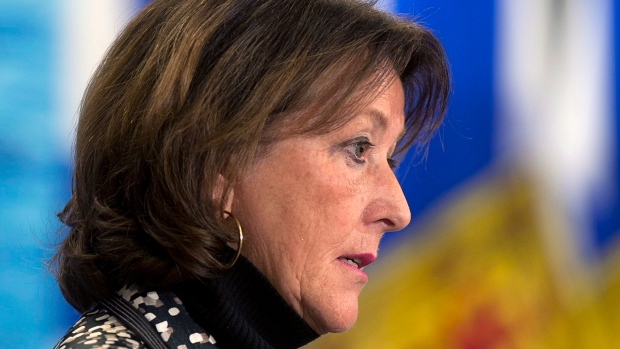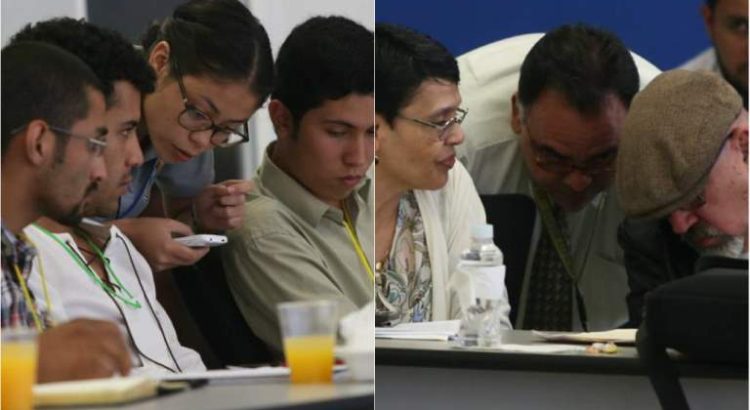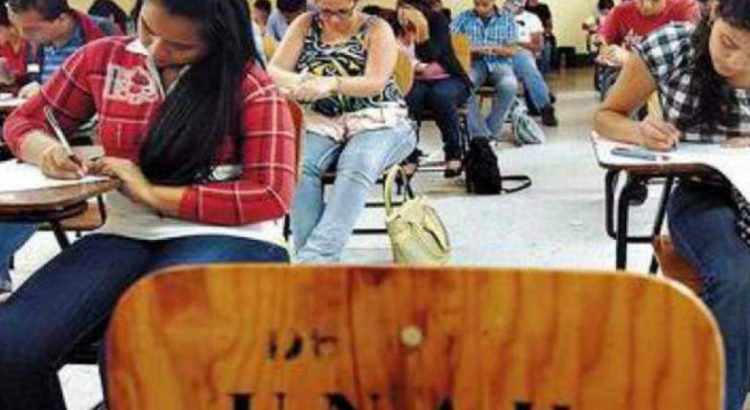Canadá/Diciembre de 2016/Autor: Maryse Zeidler/Fuente: CBC News
RESUMEN: Es un cliché común: el profesor mundano que encanta y hipnotiza a su joven y adorador estudiante. El matemático John Nash, capturado en la película de Hollywood: A Beautiful Mind, fue uno de ellos. Al igual que el biólogo y el sexo investigador Alfred Kinsey. Recientemente, el profesor de escritura creativa de la Universidad de Columbia Británica, Steven Galloway, se unió oficialmente al club cuando se disculpó con su abogado por tener un asunto de dos años con uno de sus estudiantes. La revelación se produce después de una controversia de un año de duración que rodea el despido abrupto de Galloway sobre «acusaciones serias». Pocos detalles han sido revelados; El asunto está siendo revisado. Al igual que otras grandes universidades canadienses, UBC no prohíbe a los profesores de citas con estudiantes, aunque las reglas de conflicto de intereses les obligan a revelar la relación con un superior ya recusarse de cualquier decisión que pueda afectar al estudiante.
It’s a common cliché: the worldly professor who charms and mesmerizes his adoring young student.
Mathematician John Nash, captured in the Hollywood film A Beautiful Mind, was one of them. As was biologist and sex researcher Alfred Kinsey.
And recently, University of British Columbia creative writing professor Steven Galloway officially joined the club when he apologized via his lawyer for having a two-year affair with one of his students.
The disclosure follows a year-long controversy surrounding Galloway’s abrupt dismissal over «serious allegations.» Few details have been revealed; the matter is currently under review.
Like other major Canadian universities, UBC doesn’t prohibit professors from dating students — although conflict of interest rules require them to disclose the relationship to a superior and recuse themselves from any decisions that may affect the student.
But it prompts the question: In an era of increasing discussion of sexual harassment on campus, should universities allow relationships between faculty and students at all?
Changing landscape
Earlier this year, B.C. passed legislation making it mandatory for universities to have sexual assault policies in place by May 2017. In Ontario, provincial law requires universities to have similar policies in place by January 2017.
But those laws don’t cover consensual relationships between professors and students, despite the power dynamic.
«We’re working right now to create the best sexual assault policy that we can, and then there would be consideration about the necessity for … a policy that addresses professor and faculty and student relationships,» said Sara-Jane Finlay, UBC’s associate vice-president for equity and inclusion.
CBC News asked UBC’s faculty association for its take on the matter, but it didn’t respond.
Like UBC, other major universities in Canada also do not have policies banning such relationships, although they do strongly advise professors against them because of their high risk of inviting sexual harassment accusations.
Bans at major U.S. universities
In the U.S., however, a handful of prominent universities like Stanford, Yale and Harvard were prompted to prohibit these relationships after a change in national education law, Title IX, which parallels upcoming changes in Ontario and B.C.
Title IX prohibits gender discrimination in any federally funded education program. Originally aimed at athletics programs, it has since been increasingly interpreted to include sexual harassment and assault.
«That’s the context in which Harvard University revised its sexual harassment policy and procedures,» said Alison Frank Johnson, former chair of the committee that put forward Harvard’s policy on the matter.
«In some ways we just codified broad cultural expectations on our campus about what the relationship between teachers and students should be.»
Nobody objected’
Harvard now prohibits any intimate relationships between faculty and any undergraduate student.
Infractions can lead to a professor’s dismissal from the faculty.
Johnson says the laws were put in place to protect young students from unwanted advances from professors.
She says the policy was «completely and totally uncontroversial.»
«Nobody objected. Nobody objected in theory. Nobody objected for other people,» she said.
Sexual paranoia
But controversial American cultural critic, academic and essayist Laura Kipnis has written about the problems she sees with laws passed by universities like Harvard in her upcoming book, Unwanted Advances.
«It’s an indication of how much sexual culture has changed. And I think it’s changed in a direction of sexual paranoia,» Kipnis said.
«That’s partly why I ended up writing this book — to talk about the other side of these new forms of protections, which is that they really invite accusations.»
Kipnis isn’t advocating for professors to date students. Nor is she denying that there are a lot of legitimate accusations of sexual assault.
«But there are also a lot of cases where something gets charged as sexual assault that a few years ago wouldn’t,» she said.
That is turning students into victims, instead of encouraging them to stand up and take charge of a situation, she says.
«Part of my thinking is it’s increasing students’ objective sense of their own vulnerability.»
Ban not the solution
Shahin Imtiaz, vice-president of campus life with the University of Toronto Students’ Union, agrees that a ban is not the solution.
She says power differences can exist in any relationship and a ban on relationships between faculty and students doesn’t necessarily address sexual assault and harassment issues.
«Affirmative consent is what we need to push for, regardless of who the people involved are,» she said, adding that more support for victims is needed on campus.
«To instate blanket policies and promises and ways of reducing liability for universities doesn’t address a much larger concern.»
Are students adult enough to make own decisions?
Finlay says the climate is different at Canadian institutions like UBC, but that could be changing.
Last spring, former interim president Martha Piper indicated UBC would consider a ban on relationships between professors and students as part of its sexual assault policy.
In the end, the ban didn’t make it into the latest draft of the policy, but both Finlay and Sioban Nelson, the University of Toronto’s vice provost of academic life and academic programs, agree new sexual assault laws in their provinces will likely prompt further discussion, just as Title IX changes did at some U.S. institutions.
«I think there’s a public discourse around whether we consider students vulnerable and whether we consider students adults who make their own decisions,» Nelson said.
«That pendulum may be shifting.»
Fuente: http://www.cbc.ca/news/canada/british-columbia/university-policy-professors-dating-students-1.3890684












 Users Today : 50
Users Today : 50 Total Users : 35403243
Total Users : 35403243 Views Today : 71
Views Today : 71 Total views : 3332510
Total views : 3332510